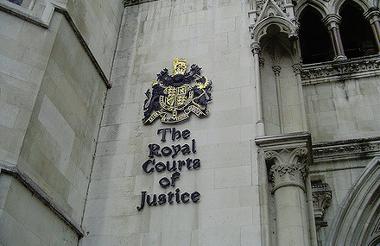More than half a billion pounds held by the dormant National Fund will be transferred to the Treasury and not to charity, a high court has decided.
The judgment, published on Friday, is likely to be the final ruling after years of legal wrangling over the future of the Fund’s assets, which stand at £600m.
The Fund was established in 1928, with the aim of paying off the UK's national debt following the first world war. The judge, Justice Zacaroli, concluded last week that moving its assets to the Treasury was appropriate to recognise “the spirit of the gift”, although he acknowledged that the sum would make “nothing but a miniscule dent” in the current national debt.
The investment company Zedra Fiduciary Services, which acts as the Fund’s trustee, had argued that the assets should instead be used either to fund existing charities or create a new charitable trust.
Hopes that the Fund might be used for charitable purposes had been raised at a previous high court hearing last November, which said that giving the money to the sector was one option to prevent it being left “in limbo”.
The history of the National Fund
The anonymous donor who founded the National Fund was identified last year as the banker Gaspard Farrer.
Correspondence with Treasury officials at the time, revealed at a previous hearing, showed they had hoped that “other rich men would be induced to follow his example”, as the government of the day sought to prevent the war debt being passed to future generations.
Although other philanthropists did contribute to the Fund, it has not received any donations since 1985.
Following research into the Fund by Civil Society News, the Labour Party pushed the government to make the money available to charity. However, the attorney general brought a case in 2018 to argue that the assets should be transferred to the Treasury.
‘Benefiting the nation’
According to last week's judgment, the trustee argued that “far from being a suitable and effective use of the funds, application of the National Fund in accordance with the attorney general's scheme [to reduce the national debt] would be ‘a futile, symbolic gesture’”.
Justice Zacaroli said that there was “considerable force” to the trustee’s argument that using the assets in this way “would make nothing but a miniscule dent in the overall volume of the national debt. I also have sympathy with the contention that a great deal of good could be done if the National Fund were applied to particular charitable causes”.
However, he ruled that giving the Fund’s assets to charity did not meet the original wish that it should “benefit the nation”, because this would assist “only such part of the citizens of the United Kingdom that benefited from the charities to whom the grants were made”.
He added that “the difference that the sum could make, if shared among each and every existing charity, would be de minimis”.
Three options for charities
The ruling showed that the trustees had received expert advice from Sir Stephen Bubb, the former chief executive of Acevo, on ways the assets could be used to fund charities.
Bubb had identified three potential ways to give the assets to charity: distributing its assets immediately to existing charities; using the £600m to endow a new charitable trust; or creating a new “wholesaler” to make grants and loans through existing foundations. Both Bubb and the trustee had recommended the third option.
Other sector figures have previously identified schemes for using the Fund’s assets if they were released. Most recently, Danny Kruger’s review of charities suggested it could endow a Community Recovery Fund to support community groups as they help the country recover from the impact of Covid-19.
Related articles













